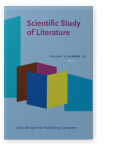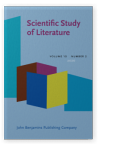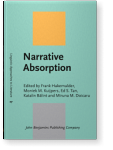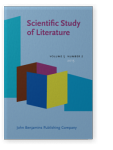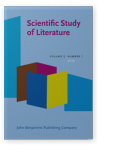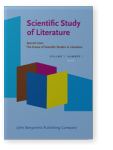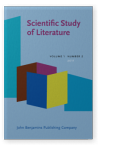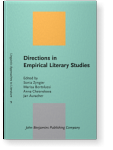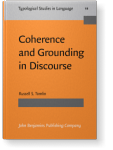Peter Dixon
List of John Benjamins publications for which Peter Dixon plays a role.
Journal
2020 Reader reactions to psychological perspective : Effects of narratorial stance Scientific Study of Literature 10:2, pp. 214–227 | Article
In this study, we used latent variable analysis to distinguish two components of reader reactions to narrative fiction: Evaluative reaction is the extent to which a character is seen as reasonable and rational, and experiential reaction is the extent to which the reader feels similar to and… read more
2017 Chapter 10. Elaboration, emotion, and transportation: Implications for conceptual analysis and textual features Narrative Absorption, Hakemulder, Frank, Moniek M. Kuijpers, Ed S. Tan, Katalin Bálint and Miruna M. Doicaru (eds.), pp. 199–215 | Chapter
A central component of absorption is the compelling metaphor of “transportation into the story world.” Here, we considered four variables related to transportation and absorption more generally: evoked realism, emotional response, and personal memories as well as transportation. We collected data… read more
2015 Measuring literary experience: Comment on Jacobs (2016) Scientific Study of Literature 5:2, pp. 178–182 | Article
Jacobs (2016) raises a number of insightful and provocative points about the study of literary experience, including the importance of development, the promise of process models, and the role of quantitative methods. In the present comment, we first elaborate on one aspect of the literary… read more
2015 Judging a book by its cover Scientific Study of Literature 5:1, pp. 23–48 | Article
In this experiment, we investigated whether book covers can signal sub-genre information to knowledgeable readers. Self-identified science-fiction fans and mystery fans sorted 80 randomly selected book covers from each of those genres into groups of their own devising. The sorts were used to… read more
2011 The scientific study of literature: What can, has, and should be done The Future of Scientific Studies in Literature, pp. 59–71 | Article
In the present editorial, we briefly describe some aspects of the domain of the scientific study of literature, the methods that have been used, and the nature of the theories that have been developed. We discuss some of the prior work that has been done on cognitive processing of and affective… read more
2011 Textual determinants of a component of literary identification Scientific Study of Literature 1:2, pp. 260–291 | Article
Three experiments were conducted on how properties of the text control one aspect of the process of identifying with the central character in a story. In particular, we were concerned with textual determinants of character transparency, that is, the extent to which the character’s actions and… read more
2008 Textual and extra-textual manipulations in the empirical study of literary response Directions in Empirical Literary Studies: In honor of Willie van Peer, Zyngier, Sonia, Marisa Bortolussi, Anna Chesnokova and Jan Auracher (eds.), pp. 75–87 | Article
Experimental manipulation is the best approach to a deep causal insight into literary response, and without it, firm conclusions are difficult. Here, we discuss two broad classes of experimental techniques. Textual manipulation involves exposing readers to different versions of a text that have… read more
1987 Actions and procedural directions Coherence and Grounding in Discourse: Outcome of a Symposium, Eugene, Oregon, June 1984, Tomlin, Russell S., pp. 69–89 | Article
